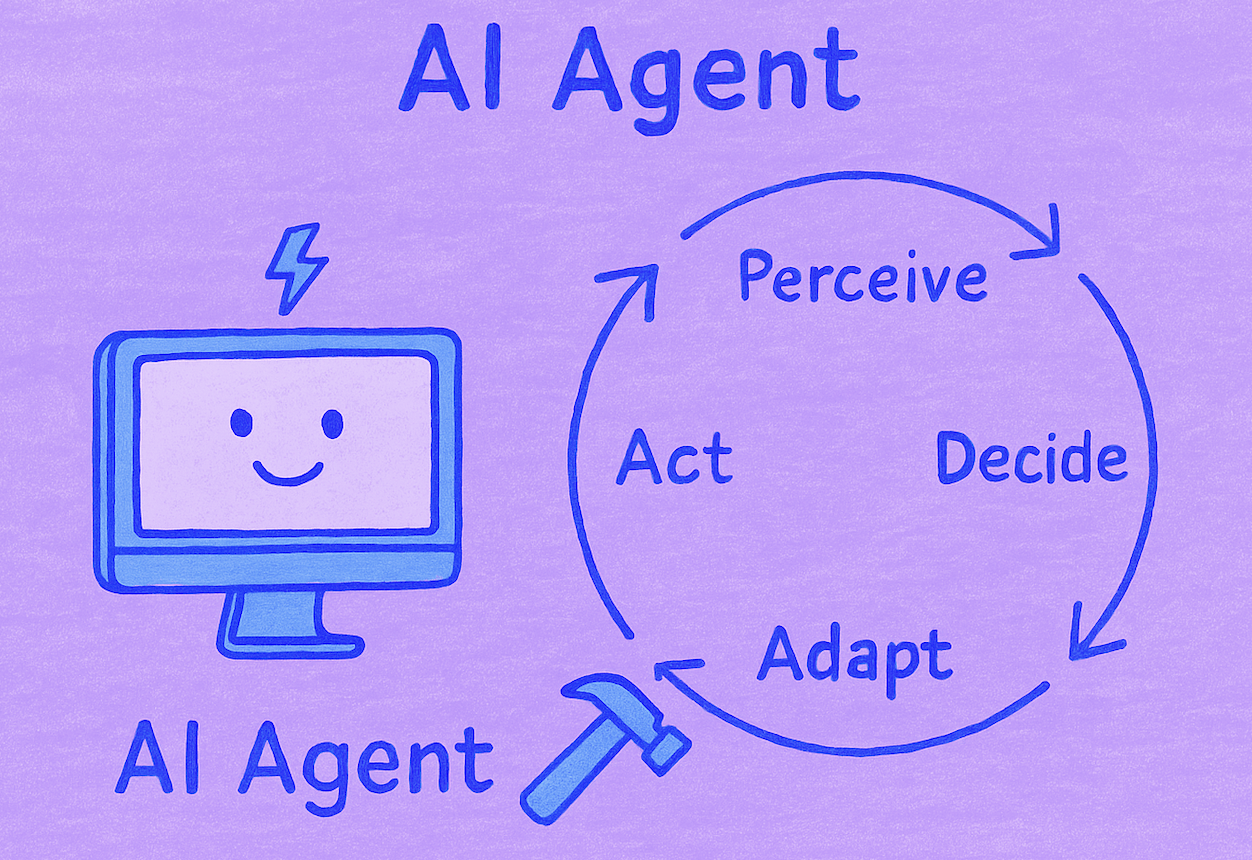 An AI agent is a type of AI system that uses a LLM for reasoning and autonomously pursues goals by making decisions, invoking tools, and adapting to feedback. Agents add goal-directed behavior on top of raw model outputs, enabling systems to act in dynamic and flexible ways. Agents can use different mechanisms to access tools, including direct integrations, plugin architectures, or standardized approaches such as the Model Context Protocol (MCP).
An AI agent is a type of AI system that uses a LLM for reasoning and autonomously pursues goals by making decisions, invoking tools, and adapting to feedback. Agents add goal-directed behavior on top of raw model outputs, enabling systems to act in dynamic and flexible ways. Agents can use different mechanisms to access tools, including direct integrations, plugin architectures, or standardized approaches such as the Model Context Protocol (MCP).
Key characteristics
- Autonomous operation – Acts independently without constant human guidance
- Memory/State management – Maintains context across interactions and actions
- Goal-directed behavior – Pursues explicit objectives or outcomes
- Environmental awareness – Gathers and interprets contextual information
- Decision-making capability – Chooses actions based on reasoning and current state
- Tool integration – Can interact with external systems, APIs, or resources
- Adaptive behavior – Modifies strategy when conditions change or goals aren’t met
- Iterative process – Continuously cycles through perception, decision, and action
While agents can be built using various AI approaches (e.g., reinforcement learning, rule-based systems), large language models have significantly expanded agent capabilities—particularly for complex reasoning, natural language interaction, and flexible tool use.
Understanding relationships
AI agent vs. AI system
All AI agents are AI systems, but not all AI systems are agents.
AI Agent vs. Agentic system
An agent is a single reasoning entity. An agentic system is the larger AI system built around one or more agents, along with supporting infrastructure such as tool interfaces, integration layers (e.g., MCP clients and MCP servers), hosts, and the orchestration layer.
AI systems that are NOT agents
- Image classifiers that label photos
- Translation services that convert text
- Recommendation engines that suggest products
- Chatbots that return predefined responses
AI systems that ARE agents
- Travel planners that autonomously book and manage trips
- Trading systems that make investment decisions
- Research assistants that gather and synthesize information
- Personal assistants that manage schedules and tasks
Key distinction: Agency requires autonomy and goal-directed behavior. Many AI systems are reactive (responding to inputs) rather than proactive (pursuing objectives).
Example
A travel-planning agent that understands user preferences, checks flight availability and weather conditions, books reservations, monitors for delays, and automatically adjusts itineraries when disruptions occur.
Agents are a subset of AI systems, the ones that can operate independently toward goals rather than simply processing inputs and returning outputs.
